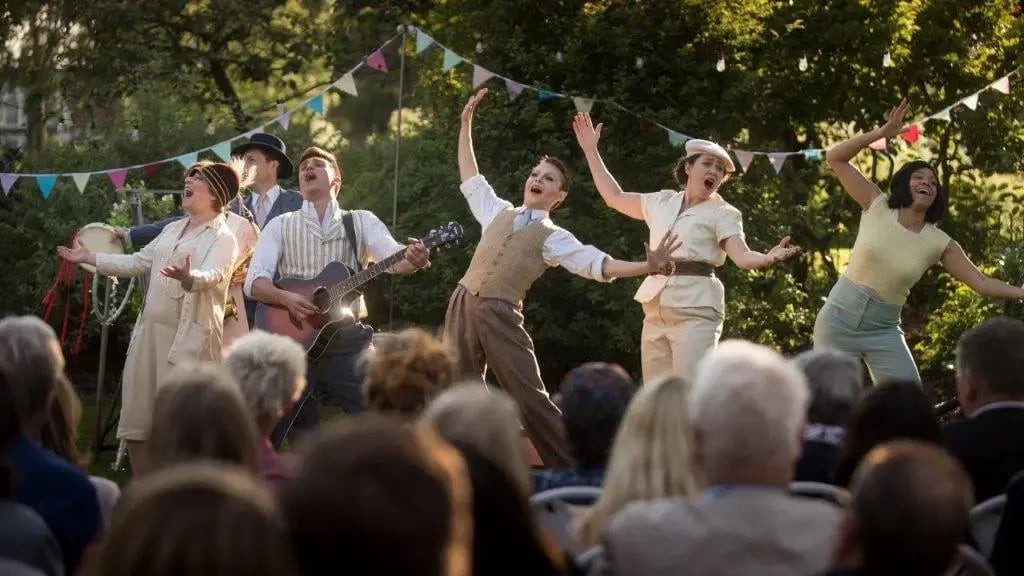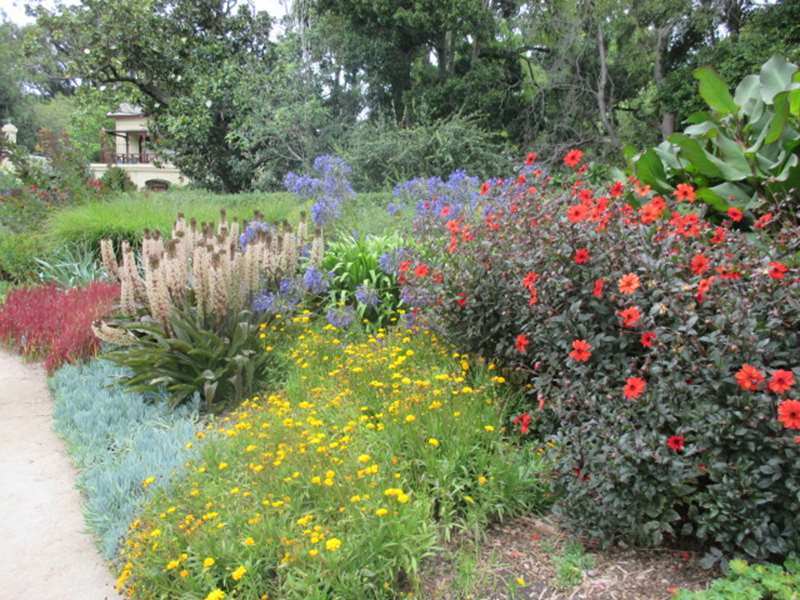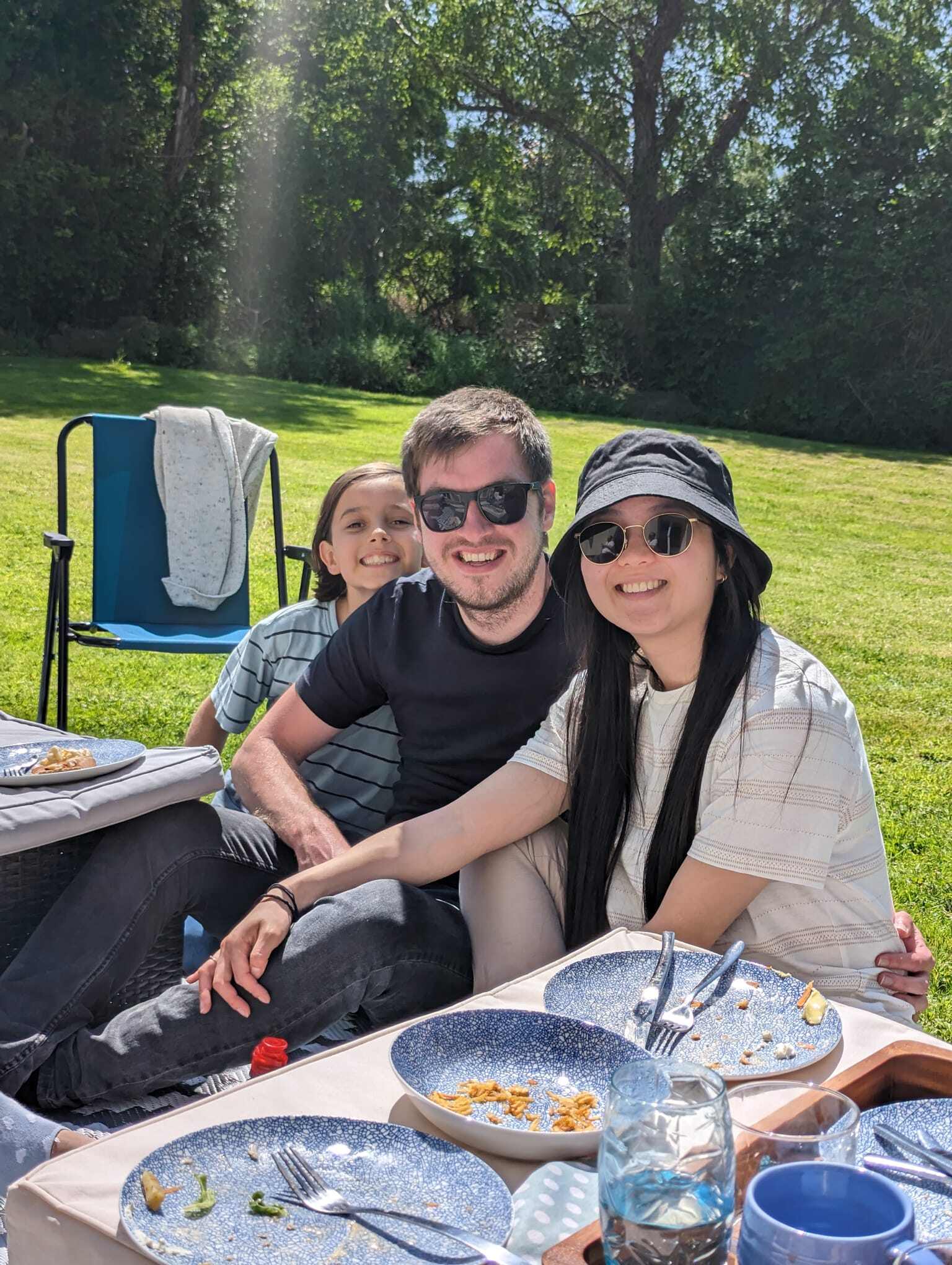
Have you ever stopped to ask yourself, what would be the most important element of your new garden? For example, do you consider that plants are the most important element of a garden? Or perhaps do you consider the styling of the garden to be the most vital? Or is it getting the functionality of the garden right so that everything just works?
Of course, if you ask your partner, they might give you a completely different answer. And if you ask your kids this question they might say "The basketball court!".
Conceptually, you may consider that the two most important elements of your new garden might be "aesthetics and function". You'd be right, but let us introduce you to an answer that might be more basic than this.
It's an answer that addresses the most fundamental element of your new garden. One which allows you to align all other decisions regarding your garden against this one point.
Let's take a look...
What makes the 'best' garden?
As landscapers, we could talk about creating the best garden possible for you. But the 'best' is very subjective and everyone tends to have a different opinion about what makes something the 'best'.
If you've ever gone to a show like the Melbourne Flower and Garden Show and noticed who won the award for the 'best garden' you might find yourself thinking, "Really?! That other one is so much nicer!"
So the word 'best' is very subjective. Which is why we prefer to use the word 'ideal'.
The word 'ideal' encompasses the notion that something is the best possible outcome given the boundaries or challenges that were faced. There are always constraints to any dream so 'best' needs to be viewed in context, which includes the weighing up of all the factors involved that influence the outcome.
So what would be your 'Ideal Garden'?
The power of imagination when designing your garden
Close your eyes for a minute and picture yourself relaxing in your ideal garden.
What do you imagine? What do you see, hear and feel in your mind?
Can you hear birds chirping and twittering through trees? Is there a gentle breeze on a warm day cooling your face? Can you hear young children giggling as they chase one another around the garden?
As you do this, do you find yourself smiling? Do you feel relaxed? Do you have a sense of serenity washing over you? Could you picture yourself slipping into a state of complete bliss in your ideal garden as you lay there doing absolutely nothing?
Or as the Italians like to say so elegantly - Dolce Far Niente (the sweetness of doing nothing).

Now the kind of garden that comes to your mind in the above examples is probably one you'd define as being very 'relaxing'. But perhaps for you, your ideal garden needs to be something more exciting and stimulating.
In this case, when you close your eyes and contemplate a more active garden, do you hear kids laughing as they splash about in the pool? Or do you hear some balls hitting the basketball backboard? Or maybe you hear music playing and a whole bunch of friends gathered around a BBQ laughing and telling stories.
Now, of course, you may wish for both a relaxing garden and at other times a loud playful one as well.
Contemplating is the practice of visualising a future. As you close your eyes you allow yourself to create images along with sensations, that weave a possible narrative of the future.
This step is so critical in developing your ideal garden that if you choose not to invest a little time in doing it, do not be surprised if your future garden is somewhat mediocre as a result. Some might call this daydreaming, some visualising or contemplation, others may have another name for it.
Here's an idea, spend the next 3 minutes lying back with your eyes closed, imagining what it would be like enjoying your ideal garden. What did you learn from this?
How to ensure your dream won't be forgotten
As you may have discovered in the above exercise, dreaming can be the first and most vital stage of the process of creating your ideal garden.
But what comes next? Essentially after you've dreamt the dream, the next step is about how to make that dream more real by bringing it into existence in the real world.
Sometimes the best way to do that is to create a wishlist of things you would like in your ideal garden:
- 7x3.5m pool
- lawn for kids
- outdoor kitchen and pergola area for entertaining
- veggie garden
- etc
Once you've done this you might find your dream beginning to materialise in your mind. As you do, you might find yourself diving deeper into more detailed questions like, "What colour pool tiles do I want?" And "What colour pavers would complement those?" As you start this deep dive, you might find the whole thing becoming more real to you.
The challenge is that once your focus gets down to the details, you can tend to forget the big-picture dream or vision you had that began it all. By the time a few friends have given you their opinions, and you've read 14 articles online to give you further opinions, you can start to get hazy about the dream you once had.
So it is important to stay focussed on your dream throughout the process.
So what is the most important element?
Have you ever had a conversation with someone who really loves their garden and just raves about it? One thing you might have noticed is that they don't tend to talk about the features they have in their garden, but more about the experiences they have in it and how it makes them feel.
They might start with something like "Oh we just love our garden, it's...." Or "It's so good when the kids' friends come over and they all jump in the pool". Or "We love having friends over for a BBQ and just relaxing on the deck."
After a while, they might start talking about how good their pool cleaner is or how many tomatoes they grew in their veggie garden this summer. But their prime focus is on the experiences they have gained from it.
There is one common denominator among almost all gardens we've been involved with over the past 30+ years and that is all of them have a basic purpose which they need to fulfill.
This common denominator is not the inclusion of having a pool. It is not using the latest trending materials or more expensive materials? It does not include the style of the garden to suit the architecture of the house. And it is not that plants are the hero of any garden and so must have the most attention while designing. All these are 'contributing factors' that help make a garden you'll admire.
No, the common denominator of all great gardens that bring joy to their owners is that they are: AN AUTHENTIC GARDEN WHERE WELLBEING CAN FLOURISH
So what does this actually mean? Especially the word 'authentic'?
The word is usually defined as:
"Being true to one's own personality, spirit, or character"
(For example, when I was getting married, I contacted a kilt maker in my hometown of Tillicoultry in Scotland to make it for me. I specified that it had to be of my clan - MacGregor. I wanted not only to be authentic to how a Scotsman dresses for his wedding but authentic in having it made in my actual hometown where my heritage derives.)

Authenticity allows for a deeper connection. You may like some of the same garden features, the same plants and materials as many other people, but how they are all arranged is personal to you. Your personal choices are what create that deep authentic feel. Each decision you make regarding your ideal garden should be gauged against how it resonates with you. The more time and thought you invest in contemplating and deciding upon what appeals to you, the more your garden will reflect the authentic you.
Now what about the word Well-being:
"The state of being happy, healthy, or prosperous(Doing well)"
Now, this is where the creation of a garden can vary greatly for different people. Because what makes one person feel happy, healthy and like they are doing well, will be very different to what makes another person feel that way.
Many factors can influence this. For example your standard of living. For some, just having a 'nice garden' is acceptable, while for others every detail must be refined to be exactly what resonates with them as a sophisticated expression of who they are.
Some people are quite content with what they already have so even small improvements in their garden might be all they need for wellbeing to occur. You may gaze upon your existing garden and see so much potential there to create a garden that stands out.
You may be someone who sees living itself as an art form. You may like to imbue things with life and make everything like a piece of art to be appreciated. To you, the selection of the stone pavers has to be perfect, and the selection of plants has to impact your senses. You go over every little detail and refine it so the whole is in harmony. To you, anything less than this total effort would not allow your well-being to be what it could be for you.
When we talk about well-being, we can add the word "flourish". Flourishing is about 'thriving and doing well'.
What does well-being mean for you?
I'll give an example of mine. I built a pizza oven which my wife and son helped me build. When we use it, my wife Suzie makes the dough 48 hours before. On pizza cooking day, all the family and friends take turns adding their own unique toppings to personalise it. Then I tend to cook most of them unless someone wants to jump in and cook their own.


What this means to me in terms of well-being is that I absolutely love the community feeling of everyone being involved. I have a fondness for the Italian way of life, of bringing people together and sharing. When we have a pizza day, the connection and fun for everyone involved result in an experience of joy. These moments are what fuel life.
As you consider your garden, think about what makes you smile, and what brings joy. What do you admire? What would give you a sense of pride of achievement? How would you like others to feel as they spend time in your garden?
Using 'wellbeing' to create your garden
Now you understand the role this 'common denominator' of 'an authentic garden where wellbeing can flourish' plays in creating your ideal garden, how can you apply it?
Well essentially designing a garden is an evolving process of refinement. You might start with the 'big picture' vision and dream, but you can get lost along the way. Sometimes you get so bogged down on tiny elements you miss the big picture. Sometimes you can begin to wonder if you are selecting the right materials or layout of your garden.
If you find yourself being plagued by these issues as your garden design evolves, stop and ask yourself, "What do I really need to do to foster wellbeing for those who will spend time in the garden?"
For example, I have a large firepit in my garden where I like to sit with friends and have a lovely glass or two of single malt whisky, listen to music and gaze upon the stars. My friend asked me to get her the same large firepit. We often share time together at each other's place but I prefer my house. Her firepit has a curved built-in bench around the firepit and I prefer to bring out a collection of camp chairs. I am pushing 60 and my back (thanks to years of landscaping) isn't so great. So in terms of well-being, I am happier at my house because I can choose my own chair that gives me the best back support and that makes the time spent more relaxing.
Using this example, you can understand how compared to a bench, the practicalness of camp chairs can affect MY well-being. But what affects YOUR well-being is personal to you.
How your well-being connects to others
When you think about wellbeing a little more deeply you might find there are, four primary areas that have the most impact on your wellbeing.
Each of these should be positively influenced to have a garden that provides you with well-rounded well-being. It's not just good enough for the garden to only provide wellbeing for you or your family or your friends.
- Self - Your garden should bring about an increase in well-being for you. A deeper connection to yourself should come about by designing a garden that will wash over you, rejuvenate you and remove any life knocks you pick up along the way. For you, it might be creating a spot in the garden to be alone and read a book. Or it may be a time to spend doing a little gardening, which is known for its therapeutic benefits. Your garden should be designed for how you like to spend time in the garden when you are alone.
- Family - Have you ever noticed how 'space' can affect you positively? It's why people go to the beach or walk through nature or climb hills because as they look outwards in nature, they feel better. There is more space in your garden than in your living room. So families actually have the opportunity to connect better in a garden. Designing your garden to allow your whole family to be outside spending time and connecting with each other will reap many rewards.
- Friends - Spending time with our friends is something we all look forward to. Laughter, good conversation, or cooking together on the BBQ, are all chances to connect and moments to treasure. Consider how you wish to entertain your friends and how you wish them to feel. Is there room for friends to wander into the garden and lay on the grass or sit in some nook? If you design your garden to be inviting for others and create lots of moments with each other then people will want to come around to your place.
- Nature - All living entities such as animals and plants are our cousins. They emit positive energy that can affect our emotions for the better. If you've ever watched the majestic way a honeyeater gathers pollen you'll know how this makes you feel. When you smell the fragrance of jasmine, you feel yourself being uplifted. Nature is there for you and it will increase your wellbeing. Design your garden around how its many life forms such as plants will elevate the wellbeing of all those who spend time in it. It is well documented that the greenery of the plant kingdom affects us on the deepest levels of our psyche and brings about a state of contentment.
Step into a future full of wellbeing
I hope you found this article enlightening. Is it real to you that 'authenticity' and 'well-being' lie at the heart of any ideal garden?
Did reading this trigger some thoughts and ideas for what might could be 'an authentic garden where wellbeing can flourish'? I hope so. Because when you think about it, your new garden is but a few steps away. Just walk out the back door and there is where it could be!
What joy your new garden could bring to you, your family and all your friends!
This is a very personal article from me that I wanted to share with you. I hope it inspires you in some small way to put in the effort to bring about what could be a wonderful new way of living in your new garden.
And if you think I might be worthy, along with my team, of creating that garden for you, then your happiness at enjoying it would be almost as great as my joy in creating it for you.
Articles covering Landscape Design and Construction in Melbourne...
Some things your Landscape Designer may not tell you
What is the true value of a landscape designer?
Is Whyte Gardens the right choice to landscape your garden?
If you'd like to find out how to get started, click this link below:
Founder of Whyte Gardens
Topics:





